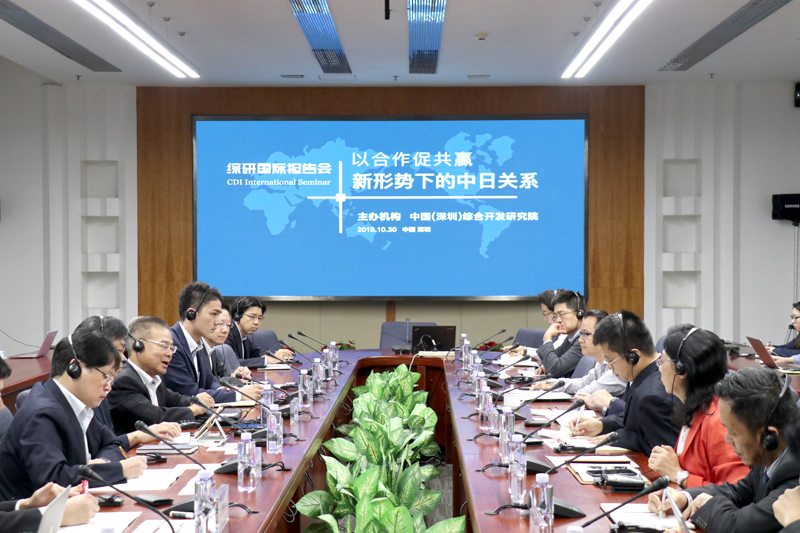Program
09:00-09:10 Opening Remarks
GUO Wanda, Executive Vice President, CDI
Tsutomu FUJITA, Adjunct Professor, Financial Strategy Program, Hitotsubashi University
09:10-10:20 Impact of China-US Trade Frictions on the World Economy
LIU Guohong, Director, Finance and Modern Industry Research Department, CDI
Tsutomu FUJITA, Adjunct Professor, Financial Strategy Program, Hitotsubashi University
10:20-10:35 Coffee Break
10:35-11:45 Industrial Policies of China and Japan
CAO Zhongxiong, Executive Director, Department of New Economy Research, CDI
Naoto NAKADATE, Assistant Director, Global Industrial Policy Office, Minister’s Secretariat, Ministry of Econmy, Trade and Industry, Japan
Highlights
Impact of China-US trade frictions on China’s economy
China-US trade frictions will have some negative effects on China’s economy. For example, Guangdong, a major exporter of the country, has felt direct impacts on its exports, financial market and high-tech businesses, as it has a relatively large share of processing trade that involves many high-tech companies. As a result, China should further open its market and enhance IPR protection, thus giving a new impetus to its economic growth. Meanwhile, China should also stay committed to independent innovation to boost sustained growth and minimize the impacts of trade tensions on its economy.
Industrial Policies of China and Japan
China’s industrial policies are more like guiding principles. China’s industrial policies are also transitioning to become more market-based and inclusive, in a bid to safeguard business interests. Japan’s industrial policies, like Industry 4.0, promote social and economic development by connecting industrial development with cutting-edge technologies. The industrial policies of Japan put emphasis on digitalization and shared access to data. Not only are they aimed at boosting productivity, but also they are aimed at promoting social well-being, which means to address social issues like aging through smart technologies.
Prospect for China-Japan cooperation
There is enormous potential for China-Japan cooperation in industrial and technological fields. Japan is strong in hardware manufacturing, such as high-tech parts, industrial equipment and robots, etc, while China is more competitive in internet and innovation. The two countries should leverage their competitiveness to fuel Asian industrial upgrading. China and Japan can also cooperate in the third markets such as the countries and regions along the Belt and Road.

